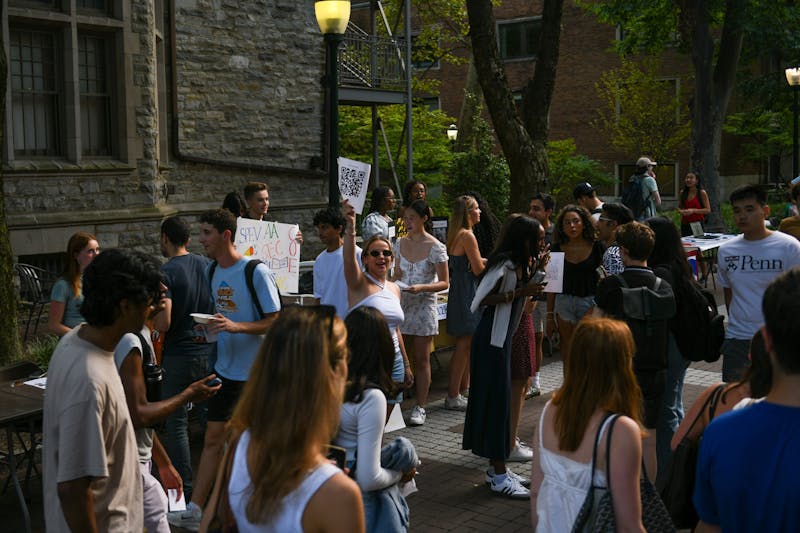This year, two of the least favorable candidates in American history are in line to be the next President. Both are candidates with questionable records and the public has not been particularly supportive of either. In other words, voters are faced with candidates they don’t really want.
One thing seems clear — the idea of an inspirational candidate is now extinguished, and the voter is told they have no other choice; pick your poison.
In an article published by The Onion from March 2016 entitled, “Precious Little Voter Needs To Feel Inspired By Candidate,” the unhappy voter is portrayed as a petulant child. The need to feel inspired by a candidate appears ludicrous, naive even (the fact that Hillary Clinton’s top financial supporter has bought The Onion is no surprise). During the DNC, masses of “Bernie or Bust” supporters tried to stage protests but were either met with Sarah Silverman’s dismissive “you’re being ridiculous” comment, or physically barricaded from protesting by what came to be known as a “Free Speech Cage.” People dissatisfied with the system are being mocked.
This year, a victory for either party will not be a moral victory. The establishment and mainstream media sideline third party candidates by excluding them from presidential debates. Then, they sideline voices of support for these candidates by creating narratives that belittle them.
By portraying third party voters as immature, coddled and privileged, this narrative negates minority voices that deserve to speak. Negating the voices of people like Cornel West or Kshama Sawant, who are outspoken in their support for third party candidates, prevents dialogue.
However, anti-establishment movements have already been gaining momentum. Sanders’ (and Trump’s) rallies drew massive crowds, packing stadiums, while Hillary Clinton and Jeb Bush struggled to attract enough people to fill up a high school gym; the people’s desperation to overthrow the current system is evident.
It has come to this — alternative options to Hillary have been dismissed and ridiculed, whilst those supporting Clinton have begun inflating the progressiveness of her campaign.
The problem is not whether or not a third party can win this year — they can’t — it is whether or not we are legitimizing the options outside of the two-party system.
This does not necessarily mean it is time to vote third party this election, but we must consider the ideas of Jill Stein and Gary Johnson regardless of whether or not they can win. The only time alternative options are mentioned is when election season rolls by, and as it does, the chances of other candidates are swept away. It comes straight out of the Simpsons skit where Kang gets elected president because it is a two party system and he’s running against Kodos — and there’s no other choice but to comply!
What prevents liberals from considering an alternative is fear. The voter, afraid of a Trump presidency, is forced into voting for fear of calamity. And fear holds back change. One of the main goals of the Democratic and Republican establishments is to maintain the status quo, and by doing so, they require a fearful populace.
By virtue of this fear, we can easily excuse and foster corruption. How can we believe, for instance, that Clinton will fight for environmental sustainability when she has yet to sever financial ties with Wall Street, oil companies and promoters of fracking?
But fear is understandable because it is human. Targeted minorities and women will fear an administration that could threaten their civil rights and erase their voices. This is valid, but the public reaction should not be to shame or denounce alternative options. Instead, this shame should be redirected to those in power, enough so to force them to take alternative ideas seriously. Instead of making demands of voters, people should be making demands for their candidates to change. No candidate is entitled to your vote; he or she must earn your vote.
I do not deny the damage that a Trump presidency will likely cause to the lives of people of color and the terrifying implications of his control of nuclear weapons. But I also do not deny the power the people have in changing the status quo.
I cannot offer a solution on how to vote, because this is about more than a single election. The first step towards change is to believe in the legitimacy of a non binary system. This cannot be a simple fancy we entertain every four years, but a notion with which we must continuously grapple.
I believe in strengthening the voice of the people. I believe in the people telling those in power how to govern. I believe in the power of the greater good over the lesser evil. We cannot continue to allow fear and shame to dictate how we see ourselves, our country and our future because there must be another way.
AMANDA REID is a College junior from Ho Chi Minh City, Vietnam, studying cinema studies & English. Her email address is amreid@sas.upenn.edu. “Reid About It!” usually appears every other Tuesday.
The Daily Pennsylvanian is an independent, student-run newspaper. Please consider making a donation to support the coverage that shapes the University. Your generosity ensures a future of strong journalism at Penn.
DonatePlease note All comments are eligible for publication in The Daily Pennsylvanian.








